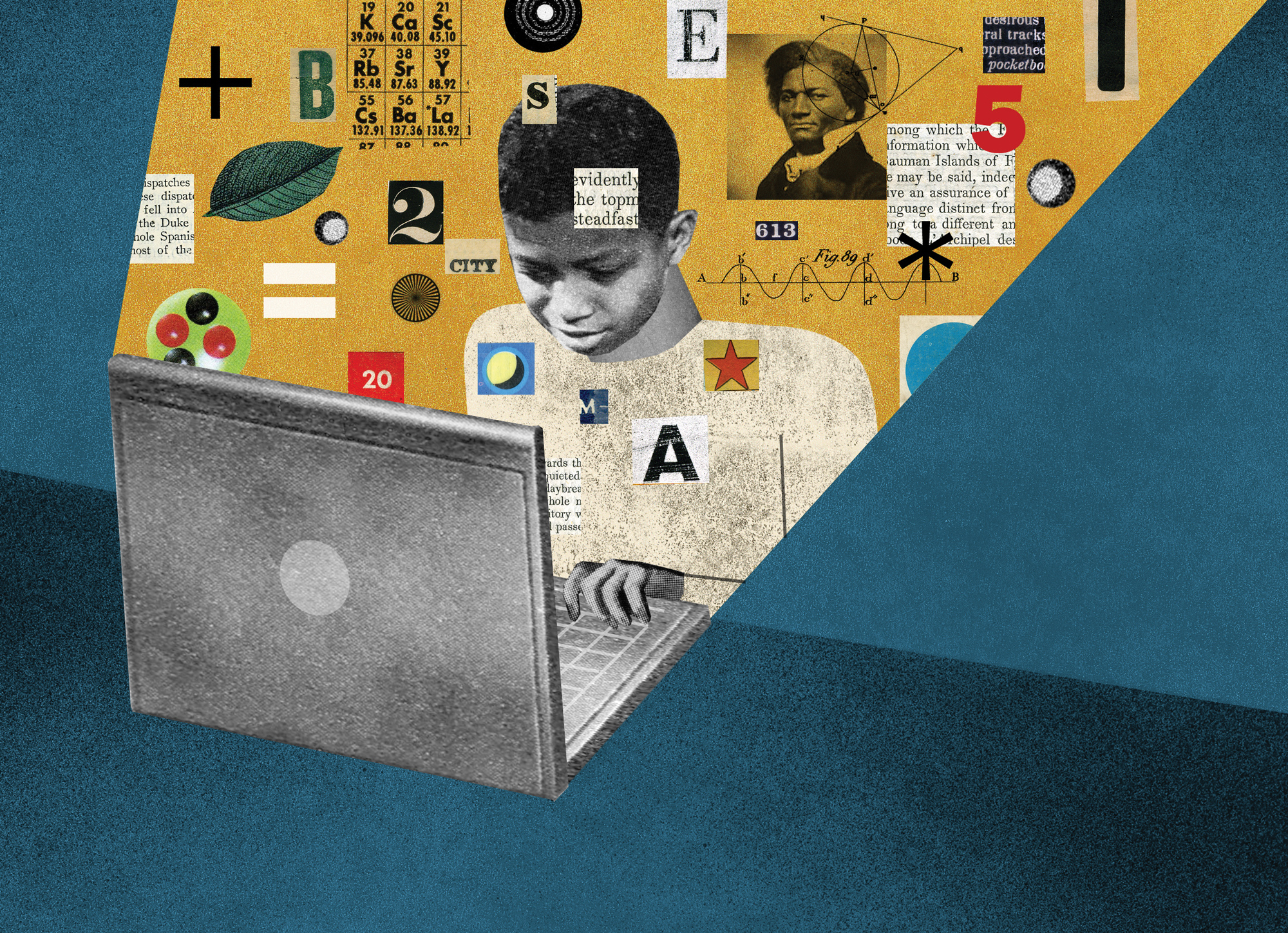Equity in education Equity in education Equity in education
In a post-pandemic world, tackling inequity is the primary goal.
By Jon Marmor | Illustration by David Plunkert | September 2022

For the past 2½ years, nothing was turned more upside down by the pandemic than education. The sudden, though temporary, end to in-person classes affected the entire education spectrum, from kindergarten through graduate school. And now that things have pretty much returned to how they used to be (the word “normal” is not that accurate these days), we asked Mia Tuan, dean of the University of Washington’s nationally ranked College of Education, to weigh in as the 2022-23 academic year is about to begin.
“The pandemic magnified existing issues within education,” Tuan explains. “What we saw are major inequities and their consequences, and those who suffered the most. Those with options to leave K-12 public schools did not have the same challenges. Those without options were vulnerable to falling behind.”
But it wasn’t all bad news. “Some communities of color who went through virtual learning responded better because they were not subject to the racism that occurred in person,” Tuan says. “It was a welcome shift not having to be in an environment where they felt beleaguered. That was a surprise. In some communities of color, certain kinds of learning happened that picked up the slack—not just book learning but other ways.”
Tuan has dedicated her career to strengthening equity and inclusion for students of all backgrounds. With her, it’s personal; she was born in Taiwan and migrated to the U.S. at the age of 3 with her family. She grew up in the San Francisco Bay Area as part of the transformational generation that helped diversify the region. That life experience formed her commitment to make sure all students know they matter and belong.
A sociologist by training, she has made this focus on equity and inclusion the identity of the College of Education. The college is doing much more than just turning out teachers; it’s tackling inequality, ensuring mental health is a top priority, seizing upon the massive disruption caused by the pandemic, attracting bright, caring educators, finding ways to support teachers on the front lines, and helping lead America to a better place. America’s students—from kindergarten through graduate school—deserve nothing less.